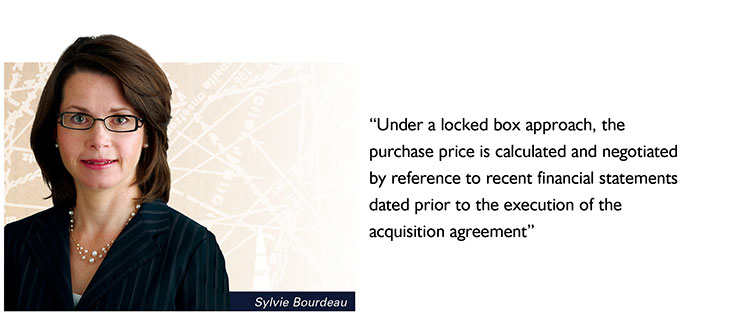TAX LAW BULLETIN
The Minister of Finance (Canada), the Honourable Bill Morneau, presented the Government of Canada’s Federal Government) 2019 Federal Budget (Budget 2019) on March 19, 2019 (Budget Day). Budget 2019 contains significant proposals to amend the Income Tax Act (Canada) ITA), the Excise Tax Act (the ETA) and the Excise Act, 2001 while also providing updates on previously announced tax measures and policies.
Significant Budget 2019 proposals and updates include the introduction of:
- a $200,000 annual cap on employee stock options (based on fair market value of the underlying shares) for employees of “large, long-established, mature firms”. Budget 2019 notes that further details of this measure will be released in the summer of 2019 but confirms that employee stock option benefits would remain uncapped for start-ups and emerging Canadian businesses;
- tax measures to support certain Canadian journalism organizations;
- rules to extend the foreign affiliate dumping rules to corporations resident in Canada controlled by non-resident individuals or trusts;
- rules intended to address the avoidance of dividend withholding tax on compensation payments made under certain cross-border securities lending arrangements of Canadian corporate shares; and
- updates on Canada’s participation in the Organisation for Economic Co-operation and Development (OECD) project on Base Erosion and Profit Shifting (BEPS).
Selected proposals and tax measures are detailed below:
PROPOSALS TO IMPROVE COMPLIANCE WITH THE CANADIAN TAX SYSTEM
Investments in the Canada Revenue Agency
In 2018, the Federal Government completed a departmental review of the Canada Revenue Agency (the CRA) service model which included an in-depth look at whether the CRA’s compliance, collections, and client services activities are being assigned in the most efficient manner. As a result of this review, CRA resources will be reallocated internally to improve service delivery, including:
- improving digital services by ensuring that taxpayers are notified as progress is made on their files including the ability to view progress online;
- timely resolution to taxpayers’ objections; and
- the hiring of additional liaison officers to assist unincorporated and incorporated businesses through the tax assessment prior to filing tax returns.
In Budget 2019, the Federal Government has continued its commitment to a fair tax system by cracking down on tax evasion and combatting tax avoidance. Budget 2019 proposes to invest an additional $150.8 million over five years (starting in 2019/2020), which is intended to allow the CRA to:
- hire additional auditors, conduct outreach and build technical expertise to target non-compliance associated with cryptocurrency transactions and the digital economy;
- create a new data quality examination team to ensure proper withholding, remitting and reporting of income earned by non- residents; and
- extend programs aimed at combatting offshore non-compliance.
Budget 2019 proposes to provide the CRA with $50 million over five years (starting in 2019/2020), to create four new dedicated residential and commercial real estate audit teams in high-risk regions, notably in British Columbia and Ontario. These teams will focus on ensuring that:
- taxpayers report all sales of their principal residence;
- capital gains derived from real estate sales, where the principal residence tax exemption does not apply, are properly identified as taxable;
- proceeds from real estate “flipping” are reported as income; commissions are reported as taxable income; and
- builders of new residential properties remit the appropriate amount of GST/HST.
Budget 2019 proposes to invest an additional $50 million over five years (starting in 2019/2020) to (i) hire additional staff to process the requests for T1 personal income tax return adjustments, and (ii) create a pilot program to provide a dedicated telephone support line for tax service providers.
Beneficial ownership transparency
Budget 2019 proposes amendments to the Canada Business Corporations Act to make beneficial ownership information maintained by federally incorporated corporations in relation to their shareholders more readily available to tax authorities and law enforcement. The Federal Government will continue to collaborate with the provinces and territories to assess improvements to corporate ownership transparency.
The OECD BEPS project
Budget 2019 confirms the Federal Government’s commitment and continued participation in the OECD project with respect to BEPS. The project is intended to address concerns related to tax planning by multinational enterprises (MNEs), which rely on bilateral tax treaties and their interaction with domestic tax rules to minimize taxes for the overall enterprise.
Budget 2019 provides an update to the BEPS measures that have been or are in the process of being implemented, including:
- Multilateral Instrument – In 2017, Canada became a signatory to the Multilateral Convention to Implement Tax Treaty Related Measures to Prevent Base Erosion and Profit Shifting (the MLI), which is intended to allow participating jurisdictions to modify their tax treaties without individually renegotiating such treaties in order to facilitate the measures developed under BEPS. Budget 2019 confirms that the Federal Government is taking the necessary steps to enact the MLI into Canadian law and to ratify the MLI as needed to bring it into force; and
- Country-by-Country Reporting – Large MNEs are now required to file country-by-country reports containing information on their global allocation of income and taxes. These reports are exchanged with global tax authorities with whom Canada has an exchange arrangement under a tax treaty or the MLI. The first exchanges of these reports took place in 2018. Canada is now participating in an OECD review of the standard for these reports to ensure that they provide tax administrations with better information that allows for proper assessment of transfer pricing and other BEPS risks. This review is scheduled to be completed in 2020.
Employee stock options
Budget 2019 proposes to introduce a $200,000 annual cap on employee stock option grants (based on the fair market value of the underlying shares) for employees of “large, long-established, mature firms”. The Federal Government asserts that the public policy rationale for preferential tax treatment of employee stock options is to support younger and growing Canadian businesses and states that it does not believe that employee stock options should be used as a tax-preferred method of compensation for executives of large, mature companies.
Although full details of this measure will not be released until the summer of 2019, the Federal Government confirms that “start-ups and emerging Canadian businesses” will be protected and will still have the ability to use employee stock options (but does not confirm that the rules will remain the same). The Federal Government also notes that the “vast majority” of employees of the large, mature companies would be unaffected. One issue that is unclear is how the Minister will differentiate between “start-ups and emerging Canadian businesses” and “large, mature companies”.
Although details are scarce, Budget 2019 provides an example calculation of the proposed stock option rules. The example seems to indicate that options that do not receive preferential treatment (because they are granted by a large, mature employer and are in excess of the $200,000 annual limit based on the fair market value of the underlying shares) will be fully taxed as ordinary income (presumably by denying capital gains-like treatment pursuant to paragraph 110(1)(d) deduction under the current rules).
The example also seems to indicate that the employer would be eligible for a deduction for corporate income tax purposes where the option is not eligible for preferential treatment. The options that are subject to preferential tax treatment would remain ineligible for a corporate tax deduction by the employer.
Budget 2019 confirms that any changes to the employee stock option regime would apply on a go-forward basis only and would not apply to employee stock options granted prior to the announcement of legislative proposals to implement any new regime. Employers that might be affected by the proposals as described should consider whether it would be advisable to grant stock options before legislative proposals are released such that the current rules apply.
BUSINESS INCOME TAX MEASURES
Support for Canadian journalism
Budget 2019 proposes to introduce the concept of a Qualified Canadian Journalism Organization (QCJO) and three new related tax measures to support Canadian journalism.
More specifically, Budget 2019 proposes the following criteria for an entity to qualify for QCJO status:
- it is organized as a corporation, partnership or trust and operates in Canada;
- for a corporation, it will be required to be incorporated and resident in Canada, and its chairperson and at least 75% of its directors must be Canadian citizens;
- it is primarily engaged in the production of original news content;
- it regularly employs two or more journalists in the production of its content who deal at arm’s length with the organization;
- it must not be significantly engaged in the production of content: (i) to promote the interests, or report on the activities, of an organization, an association or their members; (ii) to promote goods or services; or (iii) for government-related organizations; and
- it must not be a Crown corporation, municipal corporation or government agency.
Budget 2019 proposes to add QCJO as a new category of tax-exempt qualified donee, entitled to the benefits of other categories of qualified donees under the ITA. This measure will apply as of January 1, 2020.
Budget 2019 also proposes to introduce a 25% refundable labour tax credit on salary or wages paid to eligible newsroom employees of qualifying QCJOs. This measure will apply to salary and wages earned in respect of a period on or after January 1, 2019.
Budget 2019 further proposes to introduce a temporary 15% non-refundable tax credit for subscriptions to Canadian digital news with maximum annual tax credit of $75, on amounts paid by individuals for eligible digital news subscriptions (i.e. subscriptions that entitle a taxpayer to access content provided in a digital form by a QCJO that is primarily engaged in the production of written content). This credit will be available in respect of eligible amounts paid after 2019 and before 2025.
Business investment in zero-emission vehicles
Prior to November 21, 2018, the capital cost allowance (CCA) allowed in the first year that a depreciable property was available for use was generally limited to half the amount that would otherwise be available. On that date, the Federal Government announced a temporary enhanced first-year CCA (known as the Accelerated Investment Incentive) equal to up to three times the previously applicable first-year CCA and a temporary 100% deduction for certain classes of depreciable property.
Budget 2019 proposes to provide a temporary enhanced first-year CCA rate of 100% in respect of eligible zero-emission vehicles acquired on or after Budget Day and that become available for use before 2028, subject to a phase-out for vehicles that become available for use after 2023 (75% if available for use in 2024-2025; 55% in 2026-2027; and nil in 2028 and subsequent years).
Two new CCA classes will be created: Class 54 for zero-emission vehicles that would otherwise be included in Class 10 or 10.1 and Class 55 for zero-emission vehicles that would otherwise be included in Class 16. For Class 54, there will be a limit of $55,000 (plus sales taxes) on the amount of CCA deductible in respect of each zero-emission passenger vehicle (this limit will be reviewed annually). CCA will be deductible on any remaining balances in the two new classes on a declining-balance basis at a rate of 30% for Class 54 and 40% for Class 55. An election will be available to forgo Class 54 or 55 treatment and instead include a zero-emission vehicle in Class 10, 10.1 or 16, as the case may be.
Vehicles in respect of which assistance will be paid under the new federal purchase incentive announced in Budget 2019 will be ineligible for this new measure.
Small business deduction – farming and fishing
In computing income from an active business earned by a Canadian-controlled private corporation (CCPC) carrying on a farming or fishing business, Budget 2019 proposes to eliminate the requirement that sales by such CCPCs be made to a farming or fishing cooperative corporation in order to be excluded from “specified corporate income” and benefit from the small business deduction.
Budget 2019 proposes to expand the exclusions to “specified corporate income” to include income of a CCPC from sales of farming products or fishing catches to any arm’s length purchaser corporation. However, patronage payments received by a CCPC from a purchaser corporation will not qualify for the proposed exclusion.
This proposal will retroactively apply to taxation years that begin after March 21, 2016.
Scientific research and experimental development programme
Budget 2019 proposes to repeal the use of taxable income as a factor in determining a CCPC’s annual expenditure limit for the purposes of the fully refundable enhanced Scientific Research and Experimental Development tax credit. Budget 2019 notes that relatively small changes in the amount of taxable income can affect the availability of tax credits. Accordingly, under this measure, CCPCs with taxable capital of up to $10 million will benefit from unreduced access to the tax credit regardless of their taxable income. As a CCPC’s taxable capital begins to exceed $10 million, this access will gradually be reduced as it would otherwise under the current rules.
These proposed amendments will apply to taxation years that end on or after Budget Day.
Character Conversion Transactions
In 2013, the Federal Government introduced “derivative forward agreement” rules which limit the use, by taxpayers, of financial arrangements that reduce tax by converting the returns on an investment, that would have the character of ordinary income, into a capital gain.
A “derivative forward agreement” is defined to include any agreement to purchase a capital property where:
- the term of the agreement (or series of agreements) exceeds 180 days; and
- the difference between the fair market value of the property delivered on settlement of the agreement and the amount paid for the property is derivative in nature (i.e., it is attributable, in whole or in part, to an underlying interest other than certain “excluded interests”).
One excluded interest is where the economic return from a purchase or sale agreement is based on the economic performance of the actual property being purchased or sold. This exception is intended to exclude certain commercial transactions from the application of the derivative forward agreement rules (the Commercial Transaction Exception).
Budget 2019 proposes amendments to the ITA which are intended to address certain character conversion transactions that Finance believe inappropriately avoided the derivative forward agreement rules by relying on the Commercial Transaction Exception. Budget 2019 provides the following example of such transactions:
- a first mutual fund enters into a forward purchase agreement with a counterparty to acquire units of a second mutual fund at a specified future date;
- the second mutual fund holds a portfolio of investments that produces fully taxable ordinary income;
- on settlement of the forward purchase agreement, the first mutual fund acquires the units of the second mutual fund and then immediately redeems or sells the units of the second mutual fund; and
- the first mutual fund will treat the gain as a capital gain having made the election to treat its Canadian securities (including the second mutual fund units) as capital property.
In this scenario, the first mutual fund does not treat the forward purchase agreement as giving rise to a “derivative forward agreement” on the basis that the agreement falls within the Commercial Transaction Exception (taking the position that the economic return is based on the units of the second mutual fund).
Budget 2019 proposes an amendment to the ITA that introduces an anti-avoidance rule to the Commercial Transaction Exception. The amendment will provide that the Commercial Transaction Exception is not available if it can reasonably be considered that one of the main purposes of the series of transactions, of which an agreement to purchase a security in the future is part, is for a taxpayer to convert into a capital gain an amount paid on the security, by the issuer of the security, during the period that the security is subject to the agreement.
This proposed anti-avoidance rule will apply to transactions entered into on or after Budget Day. It will also apply after December 2019 to transactions that were entered into before Budget Day, including those that extended or renewed the terms of the agreement on or after Budget Day.
INTERNATIONAL TAX MEASURES
Transfer pricing measures
Tax planning by MNEs continues to receive significant attention from tax authorities in Canada and around the world. Transfer pricing rules, adopted by the OECD and applied by many jurisdictions, limit a MNE’s ability to shift profits in order to minimize its overall tax burden.
Under Canada’s transfer pricing rules in Part XVI.1 of the ITA, where the terms or conditions of a transaction, or series of transactions, between non-arm’s length parties do not reflect arm’s length terms and conditions, the CRA may adjust, for the purpose of computing the parties’ tax liabilities under the ITA, the quantum or nature of amounts related to the transaction, or series of transactions, between the participants to reflect arm’s length terms and conditions. In certain circumstances, other rules in the ITA may apply to similar effect.
Budget 2019 includes proposed amendments to the ITA intended to clarify the relationship between the transfer pricing rules and other provisions of the ITA. Under these proposals, the transfer pricing rules in Part XVI.1 will apply in priority to the other provisions of the ITA, including those under Part I. One significant impact of this change is that it may increase the amount of transfer pricing penalties that are applied to a taxpayer since such penalties are determined by the quantum of transfer pricing adjustments. The current exceptions to the application of the transfer pricing rules that pertain to situations in which a Canadian resident corporation has an amount owing from, or extends a guarantee in respect of an amount owing by, a controlled foreign affiliate will continue to apply.
These amendments will apply to taxation years that begin on or after Budget Day.
Typically, the CRA is permitted to reassess a taxpayer within three or four years from the date that a taxpayer’s tax return for a taxation year is originally assessed (the Normal Reassessment Period). However, an extended reassessment period is applicable in the context of a transaction involving a taxpayer and a non-resident with whom the taxpayer does not deal at arm’s length. This 3-year extension effectively permits the CRA to reassess a taxpayer within six or seven years from the date of the original assessment of the taxpayer’s tax return for a taxation year. Budget 2019 proposes an amendment to the ITA that expands the meaning of “transaction” for purposes of this extended reassessment period by adopting the definition of “transaction” provided for in the transfer pricing rules. Under this proposal, the meaning of “transaction” will include an arrangement or event. This proposed measure will apply to taxation years for which the Normal Reassessment Period ends on or after Budget Day.
Foreign affiliate dumping
The foreign affiliate dumping (FAD) rules in the ITA were introduced in 2012 to counter the perceived erosion of Canada’s tax base resulting from transactions in which a corporation resident in Canada (CRIC) that is controlled by a non-resident corporation buys or otherwise invests in a foreign affiliate using borrowed, or surplus funds.
While the FAD rules currently apply only in respect of CRICs that are controlled by a non-resident corporation, Budget 2019 proposes to extend the FAD rules to CRICs that are controlled by:
- a non-resident individual; a non-resident trust; or
- a group of persons that do not deal at arm’s length, comprising an combination of non-resident corporations, non-resident individuals and non-resident trusts.
Amendments to the ITA are also proposed to ensure that a non-resident trust will be deemed to be related to (and therefore, non-arm’s length with) another non-resident person in circumstances similar to where a person is considered to be related to a corporation.
These amendments to the FAD rules will apply to transactions and events that occur on or after Budget Day.
Cross-border securities lending arrangements
Under a securities lending arrangement (SLA), a “lender” may transfer or lend qualified securities to a “borrower” who agrees to return identical securities to the lender at an agreed to future date. In addition, the borrower provides collateral to the lender as security for its obligation to return the borrowed securities. If amounts are paid on the securities during the term of the SLA, the borrower is obligated to pay an amount to the lender equal to such amounts that would have been received on the borrowed securities as a compensation payment (an “SLA Compensation Payment). The lender’s risk of loss or opportunity for gain or profit with respect to the securities is not changed in any material respect. In circumstances where the SLA involves a non-resident lender lending a qualified security to a Canadian resident borrower and such borrower makes an SLA Compensation Payment to such lender, specific rules determine the character of the SLA Compensation Payment for the purposes of the non-resident withholding tax rules in Part XIII of the ITA (the Characterization Rules).
Where the qualified securities loaned are publicly-traded corporate shares, dividend compensation payments made by a Canadian resident borrower to a non-resident lender under a “fully collateralized” securities lending arrangement are deemed to be a payment of a dividend by the Canadian resident borrower to the non-resident lender, and thus subject to dividend withholding tax. For the purposes of these rules, a securities lending arrangement is “fully collateralized” if the Canadian resident provides collateral to the non-resident throughout the term of the SLA in the form of money or certain government debt obligations with an aggregate value that is not less than 95% of the loaned share and where the borrower is entitled to enjoy the benefits of all or substantially all of the income derived from, and opportunity for gain with respect to such collateral.
If a securities lending arrangement is not “fully collateralized”, the dividend compensation payment is deemed to be a payment of interest to the lender, and thus may arguably not be subject to Canadian withholding tax if the Canadian resident borrower and the non-resident lender are dealing at arm’s length.
According to Finance, in order to avoid Canadian dividend withholding tax, SLAs between Canadian borrowers and non-resident lenders have been structured so that they do not meet the “fully collateralized” requirements in respect of the loaned shares or so that the loan fails the requirements of the SLA definition.
To prevent this type of withholding tax avoidance, Budget 2019 proposes the following changes:
- all dividend compensation payments made under an SLA by a Canadian resident borrower to a non-resident lender in respect of a share of a Canadian corporation are deemed to be dividends paid by the issuer of the borrowed shares, and thus subject to Canadian dividend withholding tax;
- the Characterization Rules will also apply to SLA Compensation Payments made pursuant to a “specified securities lending arrangement” (introduced in Budget 2018, these rules include loans of publicly-traded shares, or an interest in a partnership or trust that derives all or part of its value from such shares, that do not meet all of the technical requirements of an SLA but are substantially similar to an SLA); and
- the introduction of amendments to ensure that the SLA rules cannot be used to obtain other unintended withholding tax benefits.
The Characterization Rules will apply to SLA Compensation Payments that are made on or after Budget Day unless the SLA Compensation Payments are made pursuant to a written agreement that was in place before Budget Day, in which case the amendments will apply to SLA Compensation Payments that are made after September 2019.
Budget 2019 also proposes an amendment to broaden an existing exemption from Canadian withholding tax so that it includes a dividend compensation payment made by a Canadian resident borrower to a non-resident lender under an SLA if:
- the SLA is “fully collateralized”; and
- the loaned security is a share in the capital stock of a non-resident corporation.
This proposed amendment will apply to dividend compensation payments that are paid or payable or credited on or after Budget Day.
PERSONAL INCOME TAX MEASURES
Canada training credit
Budget 2019 proposes to introduce the Canada Training Credit, a refundable tax credit intended to promote professional development for working Canadians by providing financial assistance for tuition and fees associated with training. Individual taxpayers with a net income that does not exceed the third tax bracket will accumulate $250 per year in a notional account. The taxpayer will be required to have earnings of $10,000 or more in the year. This credit will be introduced along with a new Employment Insurance Training Support Benefit.
In any given year, an individual will be entitled to claim the lesser of half of eligible tuition and fees and the amount in the individual’s notional account balance for the taxation year.
Eligible tuition and fees will include: (i) tuition fees at a university, college or other educational institution providing courses at a post- secondary level or at an institution, certified by the Minister of Employment and Social Development, that provides occupational skills courses; (ii) ancillary fees and charges; and (iii) examination fees.
An individual taxpayer can begin accumulating the Canada Training Credit at age 25 and will be able to accumulated a life time maximum of $5,000. Any unused balance will expire when the individual turns 65.
This measure will apply to the 2019 and subsequent taxation years, with annual accumulation to the notional account beginning in the 2019 taxation year.
Home Buyers’ Plan
The home buyers’ plan (the HBP) permits first-time home buyers to withdraw up to $25,000 from a registered retirement savings plan (a “RRSP) to purchase or build a home without having to pay tax on the withdrawal. Amounts withdrawn under the HBP must be repaid within 15 years starting the second year after the withdrawal was made.
Budget 2019 proposes to increase the HBP withdrawal limit to $35,000 from $25,000. As a result, a couple will potentially be able to withdraw $70,000 from their RRSPs to purchase a first home. This increase in the HBP withdrawal limit will apply to withdrawals made after Budget Day.
Budget 2019 also proposes to extend access to the HBP in order to help individuals maintain homeownership after the breakdown of a marriage or common-law partnership. An individual will not be prevented from participating in the HBP because he/she does not meet the first-time home buyer requirement, if the individual lives separate and apart from his/her spouse or common-law partner for a period of at least 90 days as a result of a breakdown in their marriage or common-law partnership.
The individual will be able to make a withdrawal under the HBP if he/she lives separate and apart from his/her spouse or common-law partner at the time of the withdrawal and began to live separate and apart in the year in which the withdrawal is made or any time in the four preceding years.
The individual will be required to dispose of his/her previous place of residence no later than two years after the end of the year in which the HBP withdrawal is made. This requirement will be waived for individuals buying out the share of the residence owned by the individual’s spouse or common-law partner.
These proposals will only apply to HBP withdrawals made after 2019.
Change in use rules for multi-unit residential properties
The ITA deems a taxpayer to have disposed of, and reacquired, a property when the taxpayer converts the property from an income- producing use to a personal use or vice versa. Where the use of an entire property has changed to an income-producing use or if an income-producing property becomes a principal residence, the taxpayer may elect that this deemed disposition not apply. As a consequence, the election can provide a deferral of the realization of any accrued capital gain on the property until it is realized on a future disposition.
This election is not currently available if there is a change in the use of part of a property. Budget 2019 proposes to allow a taxpayer to elect that the deemed disposition that normally arises on a change in the use of part of a property not apply.
This proposal will apply to changes in the use of property that occur on or after Budget Day.
Permitting additional types of annuities under registered plans
Budget 2019 proposes to permit two new types of annuities, with the purpose of providing Canadians with greater flexibility in managing their retirement investments.
The current tax rules place restrictions on annuities purchased with registered funds, requiring that the annuity commence by the end of the year in which the annuitant turns 71. Subject to specified conditions, Budget 2019 proposes to permit advanced life deferred annuities (ALDA) which, among other things, will be allowed to commence by the end of the year in which the annuitant turns 85.
The current tax rules also restrict the manner in which retirement benefits from a pooled registered pension plan (PRPP) or a defined contribution registered pension plan (RPP) are provided to plan members. In particular, the current rules prohibit annuities that are provided to members directly from a PRPP or defined contribution RPP. Subject to specified conditions, Budget 2019 proposes to permit PRPPs and defined contribution RPPs to provide a variable payment life annuity (VPLA) to members directly from the plan, where the payments vary based on the investment performance of the underlying annuities fund and on the mortality experience of the VPLA annuitants.
These proposals will apply to the 2020 and subsequent taxation years.
Kinship care providers
Budget 2019 aims to clarify two provisions of the ITA to ensure that providers under kinship care programs are not deprived of certain tax benefits. Kinship care programs, offered in several provinces and territories, serve as alternatives to foster care by giving financial assistance to care providers who provide out-of-home care to children in need of protection on a temporary basis.
Budget 2019 proposes the following clarifications:
- for the purposes of the Canada Workers Benefit (a refundable tax credit that supports low-income workers), that an individual may be considered to be the parent of a child in their care, regardless of whether they receive financial assistance from a kinship care program; and
- that payments received by care providers under a kinship care program are neither taxable nor included in their income for purposes of determining entitlement to income-tested benefits and credits.
Both of these proposals will retroactively apply to the 2009 and subsequent taxation years.
Donations of cultural property
Under the ITA, taxpayers who donate cultural property to certain designated institutions enjoyed a zero income inclusion for any capital gain that would otherwise arise on the disposition of the cultural property and receive a donation tax credit that can be applied against 100% of the taxpayer’s income.
The current rules provide that in order to qualify for this tax relief the cultural property must be certified as being of national importance by the Canadian Cultural Property Export Review Board. In Heffel Gallery Limited v. The Attorney General of Canada (2018 FC 605), the Federal Court held that satisfying the “national importance” test requires a direct connection to Canada. There have been concerns that certain donations of works of art that originated outside of Canada may not qualify for the enhanced tax incentives.
Budget 2019 proposes to make enhanced tax benefits for donations of cultural property available where the new strict test for national importance is not met by removing the national importance requirement.
This proposal is to apply in respect of donations made on or after Budget Day.
Mutual funds: Allocation to redeemers methodology
Where a mutual fund trust disposes of investments to fund a redemption of its units, any accrued gain on the investments is realized by the trust and is subject to tax, and may be taxed again in the hands of the unitholder who disposes of the units at a redemption price that reflects the accrued gain.
To address any double taxation, the ITA provides a refund mechanism whereby the mutual fund trust may claim a refund of tax that the mutual fund has paid on its capital gains attributable to redeeming unitholders. However, this mechanism does not always achieve full relief.
Budget 2019 notes that, as an alternative, many mutual fund trusts use the “allocation to redeemers methodology” to allocate capital gains realized by them to a redeeming unitholder and claim a corresponding deduction. In general, the allocated capital gains are included in computing the redeeming unitholder’s income but its redemption proceeds are reduced by that amount. The Federal Government asserts that certain arrangements have been implemented under this methodology that are inconsistent with its intended policy. In particular:
- certain mutual fund trusts have allocated capital gains to redeeming unitholders in excess of the capital gains that would otherwise have been realized by these unitholders on the redemption of their units, which results in a deferral of the taxation of the excess amount for the remaining unitholders; and
- certain mutual fund trusts have used the methodology in a way that allows them to convert the returns on an investment that would have the character of ordinary income to capital gains for the remaining unitholders, where the redeeming unitholders hold their units on income account but other unitholders hold their units on capital account.
Budget 2019 proposes two new measures to address these arrangements.
First, it is proposed that a mutual fund trust will be denied a deduction under the allocation to redeemers methodology in respect of the portion of an allocation made to a unitholder on a unit redemption that is greater than the capital gain that would otherwise have been realized by the unitholder on the redemption if: (i) the allocated amount is a capital gain; and (ii) the unitholder’s redemption proceeds are reduced by the allocation.
Second, it is proposed that a mutual fund trust will also be denied a deduction where an allocation is made to a unitholder on a redemption if: (i) the allocated amount is ordinary income; and (ii) the unitholder’s redemption proceeds are reduced by the allocation.
These proposals will apply to taxation years of mutual fund trusts that begin on or after Budget Day.
Carrying on business in a tax-free savings account
A trust governed by a tax-free savings account (TFSA) is liable to pay tax under Part I of the ITA (at the highest marginal tax rate) on income from a business carried on by the TFSA or from non-qualified investments. Under the current rules, the trustee of a TFSA (i.e., a financial institution) is jointly and severally liable with the TFSA for Part I tax while the holder of the TFSA is not.
Budget 2019 proposes to extend the joint and several liability for tax owing on income from carrying on a business in a TFSA to the holder of the TFSA, recognizing that the holder is typically in the best position to know whether the activities of the TFSA constitute carrying on a business.
Moreover, the joint and several liability of the trustee of the TFSA at a particular time in respect of business income earned by a TFSA will be limited to the property held in the TFSA at that time plus the amount of all distributions of property from the TFSA on or after the date that the notice of assessment is sent.
These proposals will apply to the 2019 and subsequent taxation years.
Electronic delivery of requirements for information
Currently, the CRA may issue a requirement for information to require that a person to provide information or documents for the purposes of the administration and enforcement of various Acts. In particular, banks and credit unions are often sent requirements in respect of third-party financial information, which generally are required to be sent by registered mail, certified mail or personal service.
Budget 2019 proposes to allow the CRA to send requirements for information electronically to banks and credit unions provided that such an institution notifies the CRA that it consents to this method of service.
Accordingly, Budget 2019 proposes to amend the following tax statutes to effect this change: the ITA, the ETA, the Excise Act, 2001 and the Air Travellers Security Charge Act, as well as similar amendments to Part 1 of the Greenhouse Gas Pollution Pricing Act (also administered by the CRA). This measure will not expand the scope of information that can be requested by the CRA.
This proposal will only apply as of January 1, 2020.
SALES AND EXCISE TAX MEASURES
GST/HST health measures
The few GST/HST amendments contained in Budget 2019 relate almost exclusively to health care measures, to help keep pace with the rapidly-changing landscape of health care in Canada. Notably, Budget 2019 added certain assisted reproduction biologicals and foot- care devices to the lists of zero–rated taxable supplies, and proposed a new concept of “multidisciplinary health care services”.
In recognition of the increased use of assisted human reproduction techniques in order to have children, Budget 2019 has made certain amendments to benefit individuals using such techniques, without negatively impacting on the clinics and other service providers assisting those individuals. Traditionally, the supply of human sperm (for use in assisted reproduction) has been zero–rated, such that the supply of such property would occur without the application of GST/HST, while still allowing the reproduction clinic or donor bank making such supplies to claim input tax credits to recover their related GST/HST expenses. However, until the present, the supply of an ovum and in vitro embryos were not similarly zero–rated. Budget 2019 proposes to zero–rate the import and/or supply of an ovum and the importation of in vitro embryos – as those terms are defined in the Assisted Human Reproduction Act.
In addition, Budget 2019 allows for the zero-rating of foot care devices, including footwear, orthotics and compression stockings, where such devices are supplied on the written order of a podiatrist or chiropodist. Until the present, such devices could be acquired on a zero–rated basis by consumers, but only if they were acquired on the written order of a physician, physiotherapist, occupational therapist or a registered nurse. This proposed amendment recognizes that some patients will only see a podiatrist or chiropodist, and should be accorded the same tax treatment (i.e. paying 0% GST/HST on prescribed foot care devices) as if that patient had instead seen a physician for the prescription.
Finally, Budget 2019 proposes to recognize that Part IX of the ETA, as presently drafted, does not specifically exempt the supply of certain bundled medical services from GST/HST where they are supplied by a multi–disciplinary team of professionals, notwithstanding that each of the constituent elements of this bundled service offering would have been exempt from GST/HST if they had been supplied separately by each professional.
To eliminate the potential for this unintended result, Budget 2019 proposes to specifically exempt from GST/HST such a bundled medical service so long as “all or substantially all” of the consideration paid for this service is reasonably attributable to two or more services that are rendered and that would otherwise be exempt from GST/HST if supplied separately. The CRA generally interprets “all or substantially all” to mean 90% or more.
What is most interesting about the proposed drafting of this new provision, is that it effectively allows for a supplier to include certain taxable services (worth up to 10% of the consideration payable) in a bundled multi-disciplinary service without collecting any GST/HST on such consideration. This issue could also have the effect of restricting the input tax credits that a supplier could claim in respect of the taxable component of such a service.
We foresee potential difficulties in dealing with CRA auditors on this issue, particularly since the present drafting seems to indicate that for this provision to apply, there must be a single service being supplied (consisting of multiple constituent services), which is a question of fact that has often been litigated at the Tax Court of Canada.
Cannabis taxation
Budget 2019 proposes to amend the excise duty regime with respect to cannabis oils to deal with compliance issues that producers have encountered, as well as to introduce a duty on new classes of cannabis products that will soon be available for purchase in Canada – cannabis edibles, extracts and topicals.
The existing duty regime for cannabis products under the Excise Act, 2001 will remain in effect for four of the five existing types of cannabis products that have been legally available for recreational use in Canada since October 2018. Duties on fresh and dried cannabis, seeds and plants will all continue to be subject to an excise duty that is the higher of: (i) a flat rate applied on the quantity of cannabis contained in the final product, and (ii) an ad valorem rate of duty that is a percentage of the dutiable amount of the product as sold by the producer.
This existing duty regime also applied to cannabis oils, but there are evidently difficulties for producers in calculating the amount of cannabis in certain oil products, and so the new duty regime proposed in Budget 2019 will apply to all cannabis extracts – including oils – as well as to edibles and topicals. The newly proposed regime will be imposed on cannabis licensees at a flat rate applied to the total THC (i.e. tetrahydrocannabinol) contained in a final product. The duty will be imposed at the time of packaging the final product, and payable when delivered to a non–licensee (e.g. a retailer or a consumer).
Other previously announced tax measures
Budget 2019 confirms the Federal Government’s intention to proceed with previously announced tax and related measures including:
- income tax measures announced on November 21, 2018 in the Fall Economic Statement; regulatory proposals released on September 17, 2018 relating to the taxation of cannabis;
- remaining legislative and regulatory proposals released on July 27, 2018 relating to the GST/HST, including notably the new rules relating to holding corporations and their ability to claim input tax credits;
- measures referenced in Budget 2018 to support employees who must reimburse a salary overpayment to their employers due to a system, administrative or clerical error;
- income tax measures announced in Budget 2018 to implement enhanced reporting requirements for certain trusts to provide additional information on an annual basis and to facilitate the conversion of Health and Welfare Trusts to Employee Life and Health Trusts;
- measures proposed in Budget 2016 relating to the GST/HST joint venture election; and
- income tax measures announced in Budget 2016 expanding tax support for electric vehicle charging stations and electrical energy storage equipment and information-reporting requirements for certain dispositions of an interest in a life insurance policy.
Budget 2019 notes that such previously announced tax and related measures will be modified to take into account consultations and deliberations since their release and reaffirms the Federal Government’s commitment to move forward as required with technical amendments to improve the certainty of the tax system.
Authors
Kevin H. Yip, partner, Toronto, ON
Christopher Steeves, partner | tax group leader, Toronto, ON
Frédéric Barriault, associate, Montréal, QC
Maureen Berry, partner, Toronto, ON
Paul V. Casuccio, partner, Toronto, ON
Taj Kudhail, associate, Montréal, QC
Kathryn Walker, associate, Toronto, ON
Puyang Zhao, associate, Toronto, ON
Devon LaBuik, articling student, Toronto, ON
Demetre Vasilounis, articling student, Toronto, ON
© 2017 Fasken Martineau DuMoulin LLP
The content of this website may contain attorney advertising under the laws of various states.





























 FASKEN
FASKEN Mark Stinson
Mark Stinson Kathleen Butterfield
Kathleen Butterfield Edmond Luke
Edmond Luke







